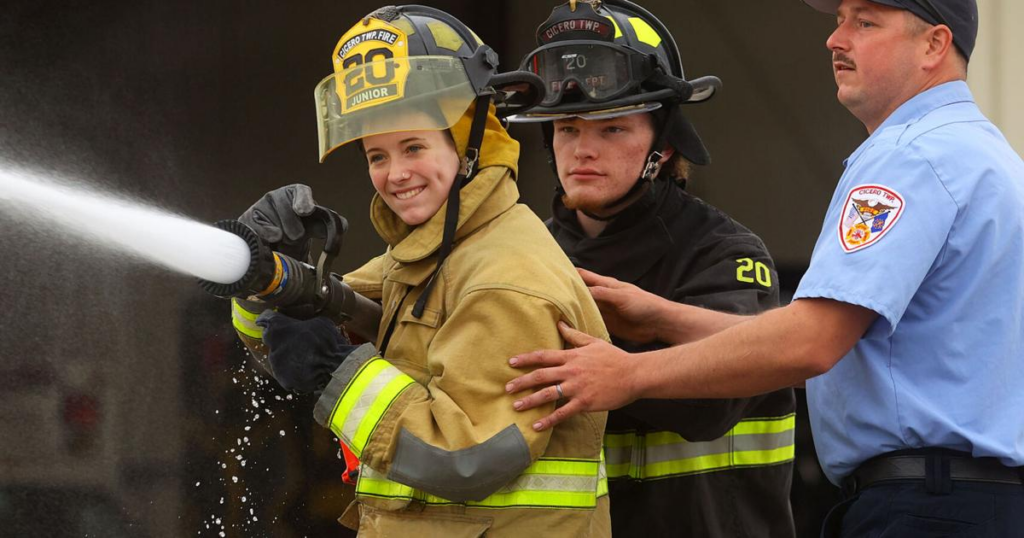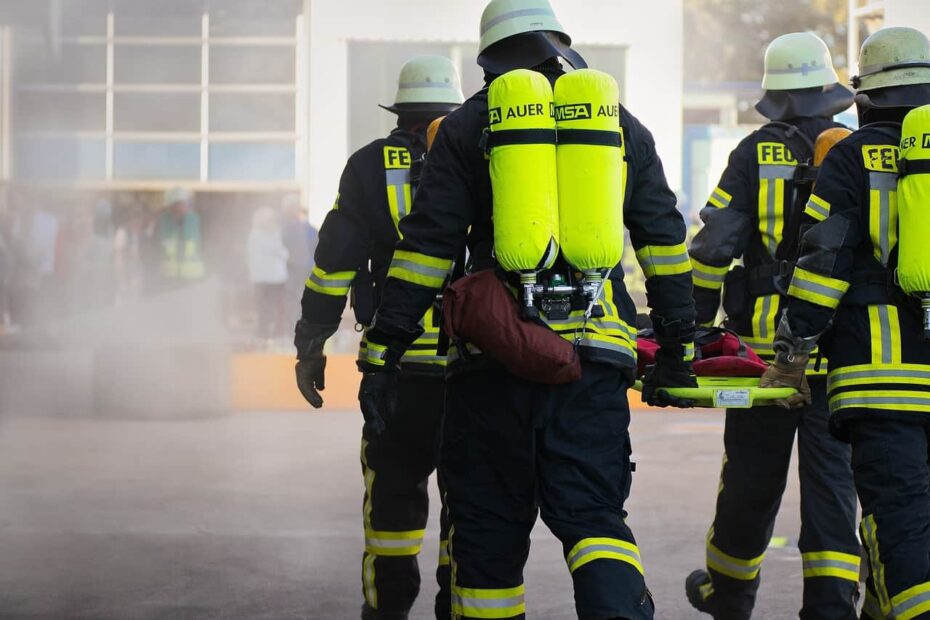This article will focus on the skills required to be a firefighter or the essential skills and qualities of a firefighter resume to succeed.
Anyone who wants to become a firefighter knows they will have to put in a lot of hard work. The selection process starts early and is very tough. It includes a written test, a physical fitness test, a background check, a medical and psychological exam, and a final interview.
There’s also school training, where you’ll learn and practice how to put out fires and keep them from starting, as well as survival skills and how to give first aid in an emergency.
Read Also: How to Become a Lifeguard
To help guide you, we’ve compiled a list of 10 essential skills needed to be a firefighter.
Top 10 Essential Skills for Firefighters
1) Problem-solving skills
Firefighters must learn to compile all relevant data, assess available resources, apply logic to identify potential solutions and balance the costs and benefits of each plan. You may need to find a replacement for faulty equipment, determine how to compensate for the excessive weight on an unstable staircase or locate a way through or around an obstructed exit. The greater your knowledge, expertise, and experience with all aspects of firefighting, the simpler it will be for you to solve problems under pressure.
2) Teamwork skills
Teamwork is a requirement for the majority of career paths. Employees who trust one another, accept their share of responsibility, and respect one another’s strengths can complete projects more swiftly, effectively, and successfully than a group of individuals who each pursue their own agenda. This is exponentially more true in the field of firefighting, where a rift in the group dynamic can endanger everyone.

- Ask yourself to be in the fire service:
- Do you show a positive attitude with team projects?
- Do you support team members who are struggling?
- Can you maintain composure during group disputes?
- Do you utilize problem-solving skills to discover solutions to a group’s issues?
- During group meetings, do you heed to the ideas of others and refrain from speaking over them?
- Do you ask team members for assistance when you don’t know how to do something so that you can quickly acquire new skills and complete team tasks?
3) Communication skills
Don’t forget that firefighters spend a great deal of time with both their coworkers and the general public. In addition to strength and tactical training, you will need to improve your communication skills. You must be able to listen well and communicate vital information as quickly and clearly as feasible. Practice and experience will assist you in adapting your communication style to various personalities and circumstances.
4) Physical fitness
Firefighters must possess above-average strength and agility as one of the most crucial aspects of their job. Several job functions cannot be conducted without a sufficient level of physical fitness. If you wish to become a firefighter, you must make fitness and health an integral part of your daily existence.

The irregular hours and physically demanding nature of a firefighter’s job can contribute to severe physical strain. A firefighter must pass both a physical and medical examination to demonstrate their ability to perform under duress. Firefighters must be strong enough to remove victims and carry weighty equipment, as well as agile enough to navigate tight spaces.
To get the most out of any body type, firefighters undertake a specialized training regimen and physical fitness program. Regardless of inherent physical attributes, a firefighter must possess the necessary physical skills for the job.
5) Adaptability Mindset
Adaptability is the ability to change along with one’s environment and to surmount a variety of obstacles, whether they be living obstacles or stressful situations. As a firefighter, you will be surrounded by constant change, from your work environment to your coworkers to the nature of your vocation.
It is essential to seamlessly acclimate to new people, settings, and circumstances, as well as the ever-changing work environment. When one of your routes is obstructed, you must quickly identify alternative routes and navigate yourself and the crew deftly around obstacles to achieve your objectives.
6) Mechanical skills
A component of this required expertise is mechanical proficiency. In all aspects of their labor, firefighters utilize tools, specialized equipment, vehicles, and machinery. The ability to operate, maintain, and repair this apparatus is essential. Fires and other emergencies can occur in any form of structure or environment. Prospective firefighters can benefit from coursework in auto mechanics, welding, and electronics, among other disciplines. Understanding how various devices function and their associated safety protocols can be of great assistance in emergency situations involving factories, construction sites, and automobile accidents.
7) First Aid Skills
Sometimes, firefighters and paramedics must collaborate. Local regulations may require a firefighter to serve in both capacities. Numerous jurisdictions in the United States, for instance, stipulate that firefighters must be certified by the National Registry of Emergency Medical Technicians as paramedics or EMTs. You must also complete formal medical training and pass the national examination.
Even if you have a job title such as firefighter, you may be called upon to assist paramedics and the police with non-fire-related emergencies. Firefighters are equipped with the tools, gear, and know-how to break down doors, enter unsafe structures, and extricate auto-accident victims from wrecked vehicles. There will be instances when you are the first to reach the injured party; therefore, it is crucial to have expert knowledge of first aid techniques such as CPR and victim stabilization.
8) Working under pressure
Running fearlessly toward a burning structure or vehicle is only one aspect of firefighting. Once you arrive, you must complete your allotted tasks as precisely and efficiently as possible. Responsibilities to your fellow firefighters, hazardous conditions, such as smoke and unstable

floors, and a very limited amount of time can result in extreme stress. During your interview for an entry-level position as a firefighter, you will likely be asked how well you work under duress. You should reassure them that you flourish in tense and chaotic environments. You must also explain how you keep your emotions at bay and maintain laser-like focus in dire situations. Prepare examples of your stress tolerance abilities from your previous training or internship.
9) Emotional intelligence skills
More emotional intelligence is needed for being a firefighter than for most other jobs because of the situations and events you will be in charge of. In order to get everyone to safety, you’ll need to be able to control your feelings as you deal with situations like telling someone to leave a building that’s on fire or making peace between two people who are fighting. Without being able to control your feelings in a healthy way, it would be hard to do your job.
10) Empathy
When you’re a firefighter, you’ll see and experience terrible, painful, and damaging things. But one skill that you must have is the ability to feel sorry for your victims. Being understanding to someone who has lost a loved one or is going through a terrible situation can help everyone get better. People who are saved by firefighters thank them over and over, but not just because they saved their life. That is important, but most of the time, they are also thanking them for understanding. People will remember how you dealt with the situation with them and treated them with care when they were having a bad day.
In conclusion
It’s important for firefighters to have a wide range of skills so they can handle the stress of their job. Every day, their lives are in great danger, but if they know the right skills, they can make it out safe. This is especially important if they need to safely and properly lead people out of a building that is on fire. If you want to become a firefighter, you should practice these skills.

